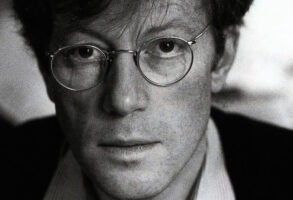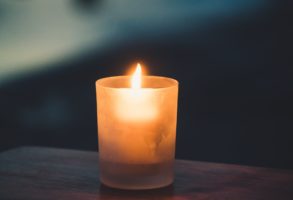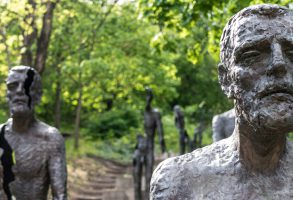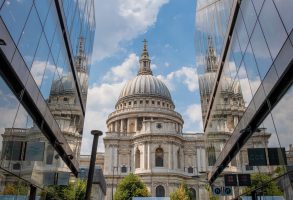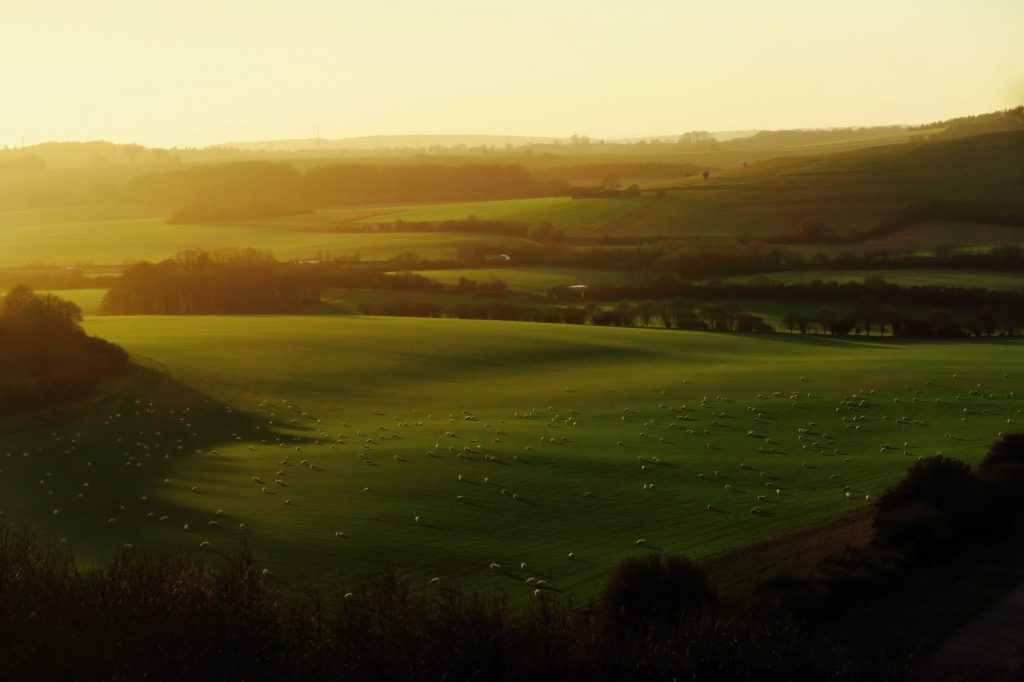
Published December 18, 2019
January
My 2018 ended with a hate storm, in response to my appointment as chair of the government’s Building Better, Building Beautiful Commission. But the new year brings a lull, and I hope and pray that the Grand Inquisitor enthroned by social media will find another target.
February
The 27th is my 75th birthday, and as it happens the last Wednesday meet of foxhounds for the season. We host the meet and celebrate with our neighbours. Despite my wife Sophie’s protests, I maintain my resolve to give up hunting at 75, counting again the broken bones, sprains and muscular disorders acquired over 35 years in the saddle, or, rather, out of it. On my last hunt, I am glad to say, I stay in the saddle all day.
I try out my thoughts on Parsifal before a crowded meeting of the Wagner Society. Through a wonderful artistic contrivance Wagner connects redemption and suffering, showing that our highest aspirations grow from our darkest griefs, and that the gate to fulfilment stands on the way of loss. The music says this, even if the words and the plot shroud it in mystery. One member of the audience asks a penetrating question. I forget the question, but remember the man, since five months later he is to save my life.
March
I have been dismayed to discover how many meetings, reports, visits and discussions are involved in a government commission. Creative writing is clearly impossible. My little book of stories, Souls in the Twilight, may have to stand in for all the other things I have wanted to write in my retirement. My agent suggests a relaunch in April. I go along with the idea, not anticipating what awaits me.
High points include a visit to Newcastle and Tynemouth, much-loved places where I could certainly live, notwithstanding the vandalisation of the city in the Sixties by councillors who treated collective responsibilities as personal gifts.
A visit to my dear friend Jonathan Ruffer at Bishop Auckland shows that our country also produces people who treat personal gifts as collective responsibilities. Jonathan convinces me that the regeneration of the north-east could be easily achieved if influential people were to see it the way he does, as a patriotic duty to be accomplished through faith.
April
My publisher, Bloomsbury, has agreed to an interview in the New Statesman, a magazine for which I retain a certain fondness, having served as its wine critic for several years. Unfortunately Bloomsbury’s publicity officer cannot make it to the interview, and I am alone with an eager young man who has come not to learn about my views but to reinforce his own. I think nothing of it, since the presence of a young and enquiring mind switches me to teacher mode, assuming knowledge in order to induce it. The fact that this person may be not just ignorant of the issues that crop up but interested only in the ways they can be used to damage me does not cross my mind.
Readers of The Spectator do not need reminding of the sequel. The interview is duly published — a mendacious concoction of out-of-context remarks and downright fabrications. We are able to obtain the tapes of the interview, and on the strength of this, and thanks to all the support that is offered to me, not least by this magazine and its brave associate editor Douglas Murray, I obtain an apology from the New Statesman.
By that time the damage has been done. I have been dismissed from the Commission, by a party which seems entirely unacquainted with the many thousands of quite well-argued words that I have offered in support of it, and the architects queue up to pour their ritual denunciations on my head.
At my lowest point, fearing that all the work conducted by the Commission would be lost, I communicate to James Brokenshire, Secretary of State for Housing, Communities and Local Government, that he should stick with it, and to his credit he does. It has been a hard time for Mr Brokenshire, but his apology leads to my re-instatement, and even the architectural press, apart from the adolescent Dezeen, ceases to repeat the fantastic and fabricated charges against me.
What lessons do I draw from this episode, apart from the obvious one that conservative intellectuals are being censored out of the public debate in our country? A headline in the Times informing the reader that I have been dismissed from a government position ‘over “white supremacist” views’; an attack in parliament demanding that I be stripped of my knighthood in the light of my ‘Islamophobic, anti-Semitic and homophobic comments’ — and so on and so forth — such things naturally jeopardise my loyalty to the country and the party to which I have devoted so much of my energy over 50 years. Do I belong here? I ask. To discover that even prominent members of the Tory party are inclined to say ‘no’ is a fairly shattering blow. But there is a good side. Letters of support come in from across the world and for a while it is as though I am listening to the speeches at my own funeral, with the unique chance of nodding in agreement. And just in case I do think of emigrating, Le Figaro mounts a campaign in support of me, preparing the way.
But this reminds me of the real disaster in April. Writing in Le Figaro in the wake of the Notre-Dame fire I pay my tribute to a city whose art and literature have been a continual inspiration since my first visit as a teenager. ‘As the angel on the roof has promised,’ I write, ‘Notre-Dame will be resurrected. It will be resurrected because its city, unique among modern capitals, has remained continually itself, from the time when it was the heart of Europe, through the time when it turned the world upside down, to our present time, when it reminds our troubled continent of the spiritual inheritance that it must not deny.’ Is that a pious hope or will the postmodern worldview of Emmanuel Macron still allow Europe to be what it really means to us? This question has animated politics across our continent throughout the year, and yet few people seem to be aware of it.
May
Sophie has arranged a belated birthday party with my closest friends. There are speeches to warm the heart, and a performance of my three settings of Lorca, sung by Emily Van Evera. David Matthews has composed a set of variations for violin and piano on ‘Despedida’ (‘Farewell’), the last of the songs, and this melody which means so much to me stays in my head through the ensuing months, pointing in a direction that I soon discover to be the inevitable one.
June
I am in Poland to open the inter-parliamentary conference celebrating the first semi-free parliament in the former Soviet bloc, 30 years ago. All the countries that suffered are represented, and my task is to unite them around their original bid for freedom, downplaying the differences that have since grown between them. Many of the martyrs are there — old people recalling the 20- and 30-year prison sentences that were then the lot of those who think like me. Their moving testimonies leave me in a shocked and sober frame of mind, knowing how little all of this means to young British people today, as the knowledge of the history and culture of Europe slips from their grasp. Because I have taken their experiences seriously over the years, the Poles consider me entitled to their Order of Merit, duly conferred by the President. With an added touch of Polish humour they also confer the Ministry of Culture’s prize for architecture. Needless to say, the British ambassador is absent from these embarrassing events, and I escape to England with a heart full of gratitude for another country where I would be welcome as a refugee.
July
And it is not the only one. For reasons I do not truly fathom I have a fan club in Brazil, and have finally agreed to turn up there to talk about the meaning of life. I am not feeling well, and the journey puts a strain on me. I stay in my hotel, reading Shakespeare. I groan in discomfort above streets where no sane man would walk, and am carted around to give lectures to crowds of young people, all of whom seem to be devoted to the task of saving western civilisation in the furthest point it has reached, which turns out to be Brazil. Maybe they are better able than I am to see the alternative is not another and better civilisation, but no civilisation at all.
Returning to London, I finally get to see the rheumatologist with whom I have booked an appointment. He talks of my lecture on Parsifal, at which he asked that forgotten question. And he delicately suggests, as a matter of some urgency, a CT scan. Alarmed by what he finds, he puts me in the hands of an oncologist who, concluding that otherwise I may be dead from cancer within a week, sets to work on me at once.
That week has been extended, but for how long? This question naturally dominates my life and the life of my family. Hope of a remission remains, though life will henceforth be very different. Nothing can be planned as a goal but only as a possibility. Again, however, as with the scandalous interview designed to ruin me, the good outweighs the bad. Never before in my life has so much appreciation come my way, and thanks to my oncologist I have been able to work at my desk, writing the report for the Commission, and organising the Scrutopia summer school, to be taught now by friends and students.
August and September
There follow chemotherapy, intensive reading (Homer, George Eliot, Conrad, Seamus Heaney), and much intimate correspondence with friends with whom I now have no inhibitions. Marwa al-Sabouni draws my attention to the covenant between Abraham and God in its Quranic version. Hold your faith to this, she writes from Syria, but remember that your pain is your redemption. Back to Parsifal, by way of the Quran! And so far the pain has been a companion, but not a tyrant.
October
I am able to get out for one consoling event — the memorial service for Norman Stone, whose amused and amusing vision of modern life always cheered me. Norman was a strong defender of our inherited identity but, as a Scot, he understood that identity has many layers: a Scot is not forced to choose between being a Scot and a Brit, any more than between whisky and wine — Norman being, in the matter of alcohol, a believer in a borderless community of the Enlightened. He had a deep knowledge of the European empires, a love of Austro-Hungary and the Ottoman settlement, and a remarkable acquaintance with the languages and literatures of central Europe. He set an example of imaginative involvement with other cultures that was all the more impressive for the sarcastic wit with which he punctured our patriotic illusions.
November
I am due in Prague for the 30th anniversary of the Velvet Revolution. Chemotherapy and crippled legs impede me, but Sophie’s unfailing support is augmented by that of our embassy. I am now a diplomatic asset in a place where previously I rocked the boat, and the event is conducted in the highest good spirits by people grateful for the former British involvement. Don’t accept the EU propaganda version that we are celebrating the fall of the Berlin Wall as though ‘freedom of movement’ were all that it is about. We are celebrating the restoration of national sovereignty to people who had been absorbed and oppressed by a lawless empire. The fact that they are now absorbed by a lawful one does not alter the case.
The Czechs confer their commemorative medal on a Eurosceptic, namely me, in a touching ceremony that reminds me why, despite the appeal of the Poles, Hungarians, Romanians and many more, it is the shy, cynical Czechs to whom I lost my heart and from whom I have never retrieved it.
December
During this year much was taken from me — my reputation, my standing as a public intellectual, my position in the Conservative movement, my peace of mind, my health. But much more was given back: by Douglas Murray’s generous defence, by the friends who rallied behind him, by the rheumatologist who saved my life and by the doctor to whose care I am now entrusted. Falling to the bottom in my own country, I have been raised to the top elsewhere, and looking back over the sequence of events I can only be glad that I have lived long enough to see this happen. Coming close to death you begin to know what life means, and what it means is gratitude.
Sir Roger Scruton is a senior fellow at the Ethics and Public Policy Center.





